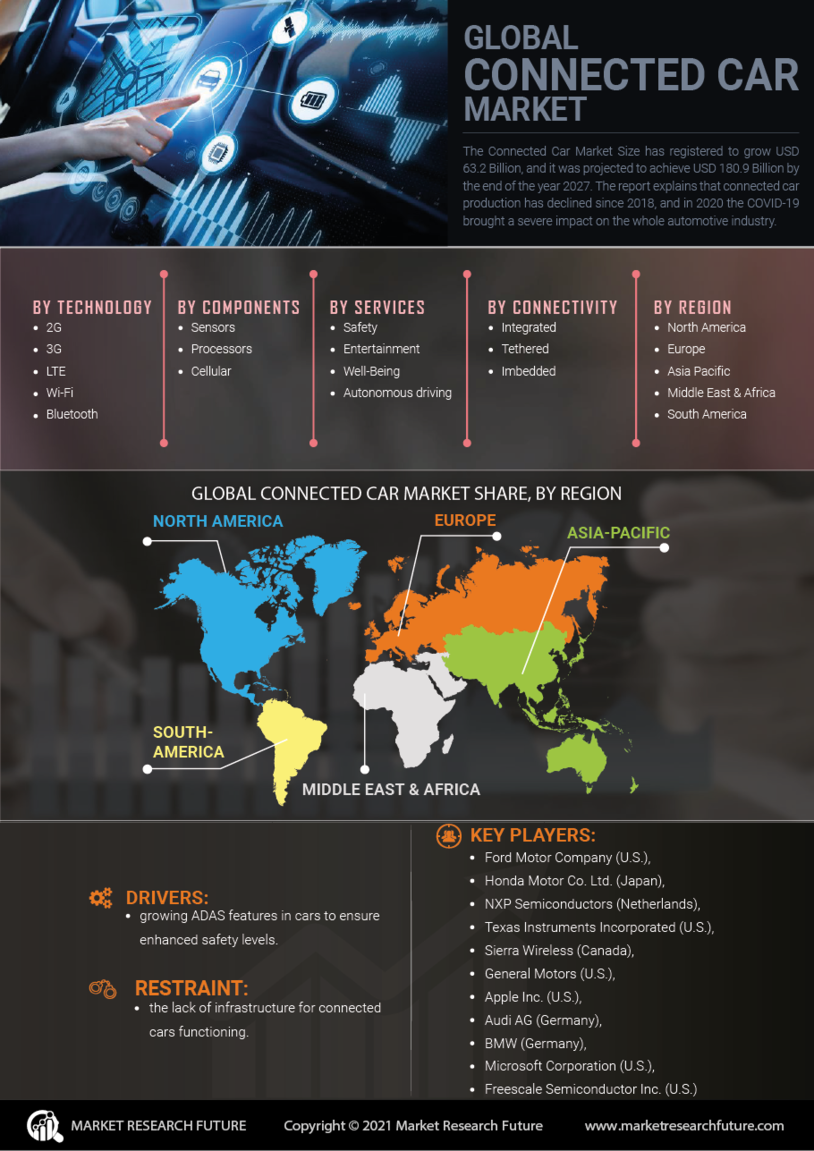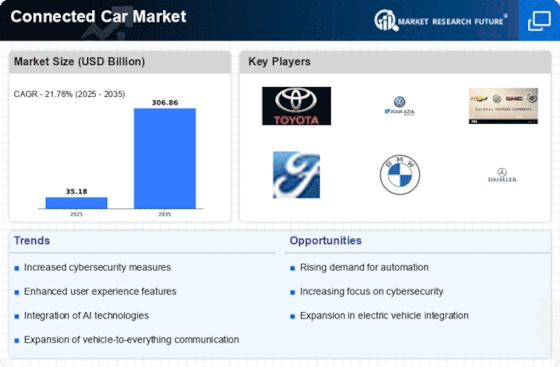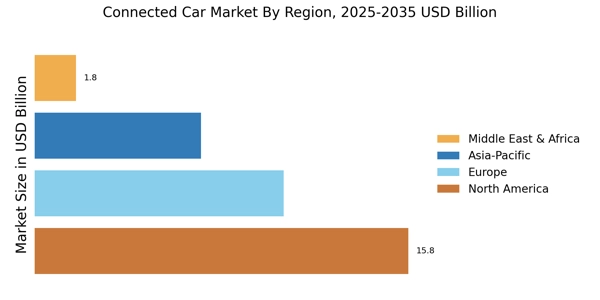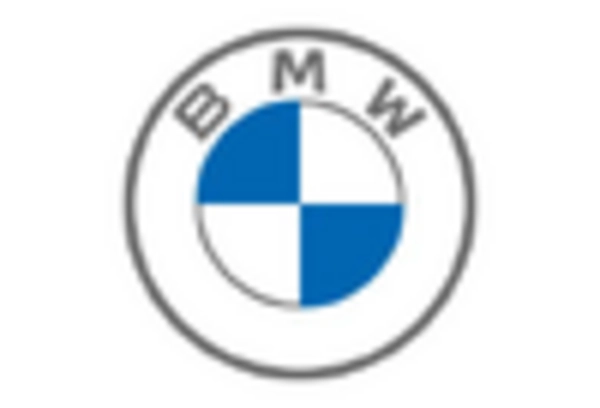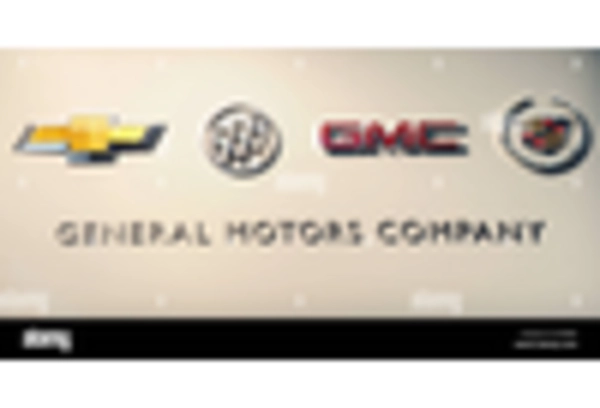Growing Demand for Autonomous Vehicles
The Connected Car Market is experiencing a notable surge in demand for autonomous vehicles. As consumers increasingly seek advanced driving technologies, manufacturers are investing heavily in research and development. According to recent data, the autonomous vehicle segment is projected to grow at a compound annual growth rate of over 20% through the next decade. This growth is driven by advancements in artificial intelligence and machine learning, which enhance vehicle capabilities. Furthermore, regulatory bodies are beginning to establish frameworks that support the testing and deployment of autonomous vehicles, thereby fostering innovation within the Connected Car Industry. The integration of autonomous features not only improves safety but also enhances the overall driving experience, making it a pivotal driver in the market.
Integration of Advanced Safety Technologies
The integration of advanced safety technologies is a crucial driver in the Connected Car Market. As safety remains a top priority for consumers, automakers are increasingly incorporating features such as adaptive cruise control, lane-keeping assistance, and automatic emergency braking. Recent market analysis shows that vehicles equipped with advanced safety features are more appealing to buyers, with a significant percentage willing to pay a premium for such technologies. This trend is further supported by regulatory initiatives aimed at enhancing vehicle safety standards. The ongoing development of these technologies not only addresses consumer concerns but also aligns with the broader goal of reducing road fatalities. Consequently, the emphasis on safety technologies is likely to continue shaping the Connected Car Industry.
Rising Consumer Expectations for Connectivity
In the Connected Car Market, consumer expectations for connectivity are rising significantly. Modern drivers increasingly demand seamless integration of their mobile devices with vehicle systems. This trend is reflected in the growing adoption of features such as in-car Wi-Fi, smartphone connectivity, and advanced infotainment systems. Recent statistics indicate that nearly 70% of consumers prioritize connectivity features when purchasing a new vehicle. As a result, automakers are compelled to enhance their offerings to meet these expectations. The emphasis on connectivity not only improves user experience but also opens avenues for new services, such as over-the-air updates and remote diagnostics, which are becoming essential components of the Connected Car Industry.
Advancements in Vehicle-to-Everything (V2X) Communication
The Connected Car Market is witnessing significant advancements in Vehicle-to-Everything (V2X) communication technologies. These innovations enable vehicles to communicate with each other and with infrastructure, enhancing safety and efficiency on the roads. The implementation of V2X technology is expected to reduce traffic congestion and improve road safety by providing real-time data to drivers. Recent studies suggest that V2X communication could potentially decrease accident rates by up to 80%. As cities and municipalities invest in smart infrastructure, the demand for V2X-enabled vehicles is likely to increase, further propelling growth in the Connected Car Industry. This technology not only enhances the driving experience but also contributes to the development of smart cities.
Increased Focus on Sustainability and Eco-Friendly Solutions
Sustainability is becoming a central theme in the Connected Car Market, as consumers and manufacturers alike prioritize eco-friendly solutions. The automotive sector is under pressure to reduce carbon emissions, leading to a rise in electric and hybrid vehicles. Recent data indicates that the market for electric vehicles is expected to grow at a rate of over 25% annually. This shift towards sustainable transportation is not only driven by regulatory requirements but also by changing consumer preferences. As more individuals seek environmentally responsible options, automakers are integrating sustainable practices into their production processes. This focus on sustainability is likely to shape the future of the Connected Car Industry, influencing vehicle design and technology.
